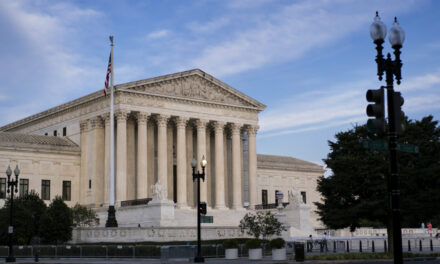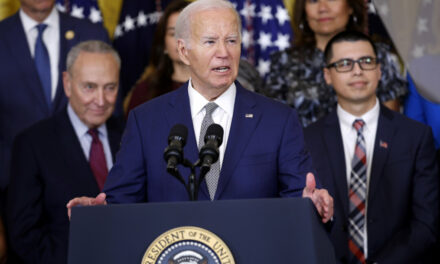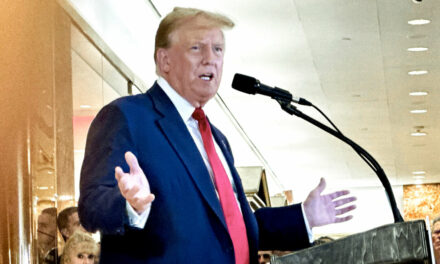We support our Publishers and Content Creators. You can view this story on their website by CLICKING HERE.
The judges said the the casino tycoon has no obligation to register for alleged work performed seven years ago.
A federal appeals court has rejected the U.S. Department of Justice’s bid to revive a lawsuit seeking to compel Las Vegas casino tycoon and Republican megadonor Steve Wynn to register as an agent of China.
Mr. Wynn, the former chief executive of Wynn Resorts and finance chair of the Republican National Committee, cannot be retroactively forced to register for his purported lobbying activity that ended almost seven years ago, a three-judge panel of the U.S. Court of Appeals for the District of Columbia Circuit said.
Specifically, the DOJ alleged that Mr. Wynn reached out to President Donald Trump and multiple administration officials to deliver a message from China’s now-disgraced deputy public security minister, Sun Lijun, who sought to revoke a certain Chinese national’s visa or otherwise secure the return of that individual to China. The alleged effort was unsuccessful.
In 2018, the DOJ sent Mr. Wynn a letter urging him to register as a foreign agent. Mr. Wynn denied having served as a foreign agent and continued to reject the demand.
U.S. District Judge James Boasberg of the District of Columbia found that argument unconvincing. He dismissed the suit in favor of Mr. Wynn, whom he said should be shielded by a 1987 D.C. Circuit precedent, known as United States v. McGoff, which found that FARA’s registration obligation “expires” as soon as the agent stops acting on behalf of the foreign entity.
In their June 14 opinion, the judges unanimously agreed with Judge Boasberg’s judgement. Even if accepting the DOJ’s allegations as true, they said, Mr. Wynn had long since stopped and therefore no longer has to register.
“When does an agent’s obligation to register under FARA expire? McGoff was explicit that the statutory obligation to file expires when the agent ceases activities on behalf of the foreign principal,” Judge Patricia Millett wrote for the panel.
“By the government’s own telling, Wynn stopped representing the People’s Republic of China by the end of October 2017. As a result, under McGoff, any statutory obligation to register expired at that time,” she concluded.
In its latest effort to revive the case, the DOJ argued that McGoff should not apply here because it was a civil matter, in which the federal government only wanted to compel Mr. Wynn to register, not to criminally prosecute him.
The circuit judges dismissed that argument, noting that a federal statute the DOJ cited allows civil suit to remedy only ongoing or imminent violations.
Judge Millett was joined by Judge Cornelia Pillard and Judge Karen Henderson.
The DOJ’s 2022 complaint didn’t referred to the Chinese national by name, although it matches the description of Guo Wengui—also known as Miles Guo, a billionaire businessman who fled to the United States in 2015 amid an “anti-corruption” crackdown led by Chinese Communist Party head Xi Jinping.

 Conservative
Conservative  Search
Search Trending
Trending Current News
Current News 







